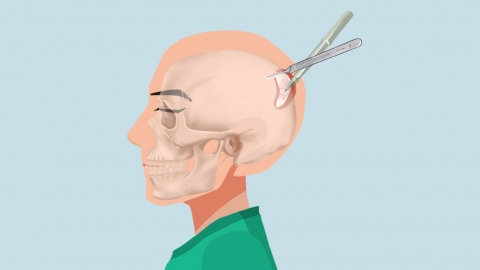What are the causes of delayed cranial suture closure?
Generally, delayed closure of cranial sutures may be caused by individual developmental differences, insufficient nutrient intake, vitamin D deficiency rickets, hypothyroidism, hydrocephalus, and other factors. If discomfort symptoms occur, it is recommended to seek timely medical treatment at a formal hospital. Detailed analysis is as follows:
1. Individual Developmental Differences
Some individuals, due to genetic factors and others, naturally experience cranial suture closure later than peers of the same age, which is a normal physiological phenomenon, typically without other abnormal manifestations. No special treatment is required. Daily attention should be paid to the observation of head development, regular pediatric health checkups, and monitoring of cranial suture closure progress and head circumference changes.
2. Insufficient Nutrient Intake
Long-term deficiency of nutrients such as protein and calcium can affect normal development and calcification of the skull, leading to delayed cranial suture closure. A nutritionally balanced diet should be maintained daily, with increased intake of foods rich in protein and calcium, such as milk, eggs, and lean meat. If necessary, calcium supplements such as calcium carbonate D3 tablets, calcium gluconate tablets, or calcium lactate granules can be taken under a doctor's guidance. Additionally, attention should be paid to pairing with vitamin D-rich foods to promote calcium absorption.

3. Vitamin D Deficiency Rickets
Vitamin D deficiency can affect calcium and phosphorus metabolism, leading to poor bone calcification, impaired skull development, and consequently delayed cranial suture closure. It may also be accompanied by manifestations such as skull softening and square skull. Vitamin D supplements such as vitamin D drops, calcitriol capsules, or alfacalcidol soft capsules should be taken under a doctor's guidance.
4. Hypothyroidism
Inadequate secretion of thyroid hormones can affect metabolism and growth and development, including skull development, leading to delayed cranial suture closure. It may also be accompanied by symptoms such as growth retardation and delayed intellectual development. Treatment should involve medications such as levothyroxine sodium tablets, thyroid tablets, or prednisone acetate tablets under a doctor's guidance to improve the condition.
5. Hydrocephalus
Excessive accumulation of cerebrospinal fluid within the ventricular system can increase intracranial pressure, compress the skull, impair cranial suture closure, and lead to delayed closure. It may also be accompanied by abnormal head circumference enlargement, a full anterior fontanelle, and other manifestations. Prompt medical attention is necessary, and medications such as mannitol injection should be used under a doctor's guidance to reduce intracranial pressure. In some cases, surgical treatment such as ventricular shunting may be required.
In daily life, attention should be paid to proper feeding and ensuring adequate nutrition; regular health checkups for children should be conducted to detect growth and developmental abnormalities promptly; age-appropriate outdoor activities should be carried out to promote healthy bone development.





